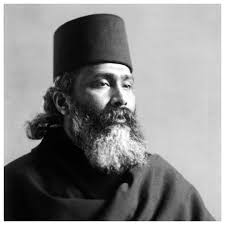Hazrat Inayat Khan
Very few at this modern time know, as occupied as they are in worldly affairs, what effect the feeling of another person brings upon us, what influence it has upon us. A central teaching of all religions and the philosophy of all prophets and philosophy of all things has been one and the same, and that was consideration of the feeling of another.
If anyone has touched this true religion, or if anyone has understood the mystery of all mysteries, it is this one thing, and that one thing is regard for the feeling of another.
The life such as we live from morning till evening, busy occupied and interested in our own motives, persevering to get our object accomplished, we become regardless of the feelings of another. Sometimes the others do not say it, and we become still more ignorant of it.
When we begin to think about and study human nature more, we begin to find that there is no creature as selfish as man can be. With all his intelligence and goodness and greatness, if there is any creature most unjust and inconsiderate, it is man. Whether wrong or right, small or great, man very often is inconsiderate about the feeling of his fellow man, with a relative who depends upon him, who waits upon him, who cares for him, someone who relies upon his word in any case.
Man has always his motive, his convenience, his joy, his object before him, all else is aside. Always he is victim to his inconsideration. He does not know that all failure, ill luck, difficulty, trouble, problems are very often because of his inconsideration. And what is this inconsideration?
Friends, we have so many debts to pay in life, not only necessary the money to pay, but there are obligations to those around us, obligations to those who expect something from us – thought, consideration, love, service, justly or unjustly, foolishly or wisely – and our obligations towards friends and acquaintances and obligations to pay to strangers.
Every day we become less and less considerate, less and less thinking. Therefore, the unknown influences which come upon us and bring about changes in our life are such that we blame this person or that person, or stars, or planets, or different things. But in reality it all belongs to the world of hearts.
As soon as one knows it, then one considers how one’s relation towards another, our duty, our interest; our virtue in the world is to be thoughtful, to be considerate about every word one says, every thought one thinks, every feeling one has, thinking what influence it will have upon another, if it will bring pleasure to another.
There is a way of seeing from the point of view of another, and so long as a person has not cultivated that faculty, he has nothing for another but blame. And praise and blame does not depend upon what a person is, but upon the heart being favorable and unfavorable.
A person who sees with one eye does not have a complete vision. In order to have a complete vision two eyes are needed, and in order to understand a certain idea, a certain point of view of another is needed, as well as one’s own.
Excerpted from a lecture delivered at Casa de Mañana, La Jolla, California March 11, 1926. India born Hazrat Inayat Khan was founder of the Sufi Order in the West in 1914 (London) and teacher of Universal Sufism.







